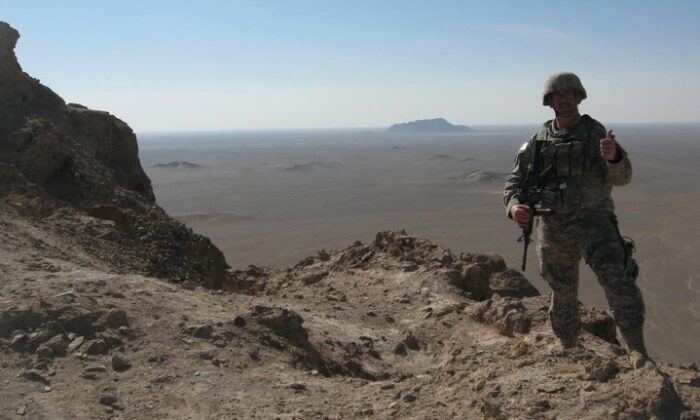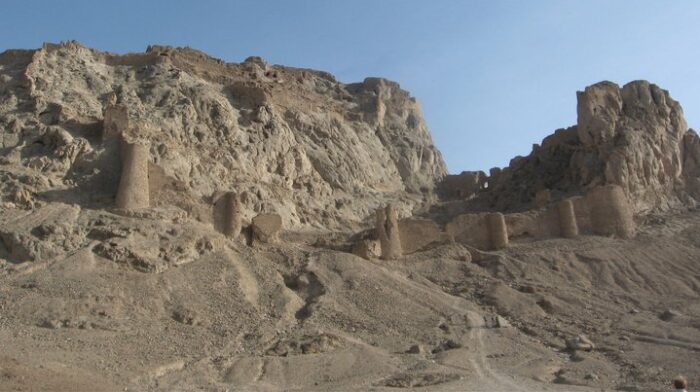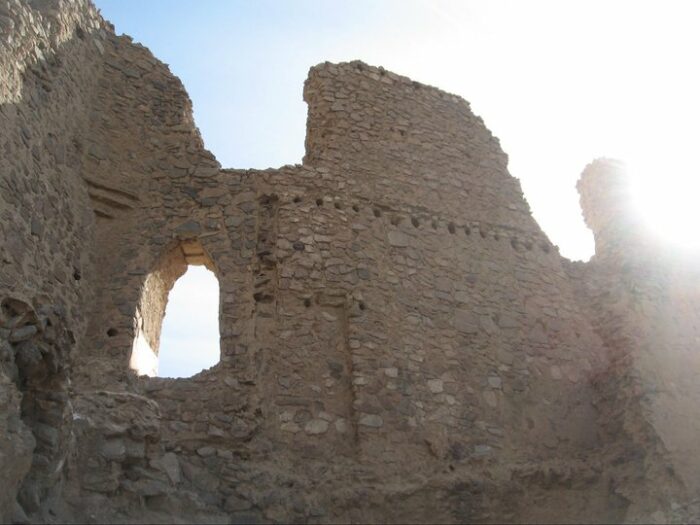My Afghanistan Odyssey Makes Me Pray for These Embattled People
Odysseus traveled across the Aegean, a real place. But there he encountered strange, magical islands and creatures of literal mythology. So goes the story.
For me, Afghanistan wasn’t like that. Not quite.
My mission: helping rebuild Afghanistan
I came to Afghanistan in October of 2010 and left in July of 2011. I had volunteered for Afghan service with the U.S. Army, but embedded in a special purpose unit, a Provincial Reconstruction Team. PRTs by nature were a hodgepodge construct, with the purpose of making Afghanistan a better place, “winning hearts and minds.”
Our commander was a Navy SEAL and so was the senior enlisted. Army Civil Affairs officers like me worked there, as did U.S. Navy Staff, U.S. Air Force Public Affairs. The Arizona National Guard provided our main security element. While I was there, I worked with not only the SEALs but the Marine Special Forces, Army Green Berets, U.S. military aviation, and many other specialized units from medics to engineers.
These diverse groups outside the PRT asked us to pay Afghan contractors to build things in the province of Farah, in western Afghanistan on the Iranian border. My job was to arrange approval and payment for projects, such as schools, roads, clinics, and bridges.
So I talked to Afghan government officials, Afghan contractors, and all manner of U.S. military staff about projects the nation wanted and needed.
To do this, I became a local expert in project financing, often traveling in the process of funding projects and other missions. I worked in the three largest cities of Afghanistan: Kabul, Kandahar, and Herat, and spent time in Bagram Air Force Base and its western echo, Shindand. I flew in and out of Camp Bastion in Helmand, and spent over a month in Chaghcharan, the capital of Ghowr (or “Ghor”).

“I became a local expert in project financing, often traveling in the process of funding projects and other missions.” Courtesy Travis Perry
Privately contracted helicopters often carried me, as did U.S. Army Blackhawks, a Chinook, and an Italian Air Force Vietnam-era Huey—in which we rode with doors open, freezing at altitude. Once I travelled in a Spanish medevac. I also voyaged from place to place in military airplanes: U.S. C-17s and C-130s, a Canadian C-130, and a French C-160.
Not only did I work with many U.S. forces, but I also interacted with Italians, French, Brits, Canadians, Spanish, Lithuanians, Ukranians, Danes, and others. (At times, this looked like Star Wars’s Rebel Alliance.)
For my last two and a half months, I was the liaison officer for PRT Farah to the Italian Headquarters in Camp Arenas outside of Herat.
How we planned to empower Afghans, and what went wrong
When the Military-Civil ops (the G-9) got tasked with writing plans to transition all of Region Command West from Italian control to Afghan control, that plan had to be written in English, the language of NATO.
That’s how I became the scribe for RC West’s plans.
To do this assignment, I learned all sorts of info not classified as Top Secret. I knew all the overarching plans and worries and capabilities. When the Italian senior commander briefed the top Afghan generals, I was in that room. My job required knowing at least some of the events happening in all Afghanistan.
For example, I knew about plans to modernize Afghan forces and get them to buy U.S. weapons. I also learned we would have needed decades to build a base of competent maintainers, logisticians, and medics.
U.S. forces left Afghanistan while this process was still underway. And as of today, current interventions at the Kabul airport don’t reverse that withdrawal.
U.S. forces did this after the Afghans bought our helicopters and learned to rely on them, but before they learned to maintain these aircraft themselves.
When we pulled out, we took all the civilian contractors doing maintenance and all the trainers. Helicopters degrade quickly. The Afghans couldn’t fly. Their rapid defeat has a clear, primary explanation—though other factors also played a part.
Afghanistan: land of harsh beauty, human violence, and faint hope
Once I looked out a helicopter window and saw the strips of barren dusty ground alongside the Farah river, made fertile with water from spring snowmelt. That river dries up more than half of each year, in a place with no notable rainfall.

“I climbed a mountain that contained an ancient ruin.” Courtesy Travis Perry
Our base at the airport turned pitch black at night. They had no street lights in the nearby city of over 100,000 people, Farah City. Nor did we on base. Like a man of ancient times, I learned exactly how much difference the moon makes when walking at night.
I saw two fortresses built by Alexander the Great, still standing millennia later.
I climbed a mountain that contained an ancient ruin. Looking in all directions, I saw no sign of green, except one compound far in one direction, near domes that were obviously man-made. I felt like I stood on Ray Bradbury’s Mars or on Star Wars’ Tatooine.
Once I heard a report of a bloody honor killing. I heard of many attacks on U.S. forces. Quite often I heard explosions. One place I had visited was later attacked. Men sharing my same “winning hearts and minds” mission fought for their lives in PRT Herat. I visited a hospital for a medical project and saw Afghans suffering from lack of food and medicine. On the streets of Farah, Afghan children begged for pens. But in Chaghcharan, they begged for water.

“A ruined fortress, at least 1,000 years old. Maybe more.” Courtesy Travis Perry
I met an Afghan Christian—only one. I obtained Christian books for him written in Afghan Dari. Later he escaped the country and my recommendation helped him enter the United States. By the way, he became a Christian in Pakistan, led to Christ by an Iranian pastor. God works in places we would not expect and arrives strongest sometimes when suffering is greatest.
Afghan food is delicious, and I met many kind Afghans. I admired their courage and strength. In fact, I love Afghanistan, despite the country’s unbelievably harsh environment. I care about what happens to Afghans.
My words now cannot convey how much I mourn.
Yet I hope and pray that Islam’s harsh side will allow Christ’s light to shine in that darkness, and that in the end, Afghanistan will become better than it ever was.





























It’s interesting to hear your stories and I appreciate you sharing. I don’t really know what to say about the rest, but it sounds like it’d be frustrating to try so hard to help a place, only to have those efforts fall apart because of people’s bad decisions.
I’m so sorry, Travis. I feel your sorrow for Afghanistan and the people who are suffering so dreadfully right now. I know how much the events of the last few days must be scorching your spirit. I share that pain. God is still in control, and we will trust Him to help those precious people through this crisis and deliver them from evil. Thank you for sharing your heart in this blog. May God bless.